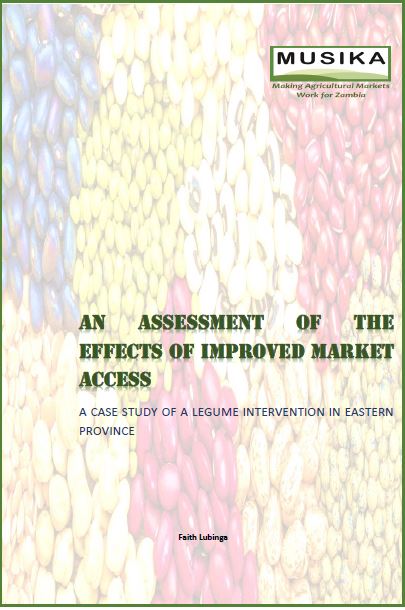
Musika’s methodology involves facilitating the creation of a beneficial market environment that supports improved access to markets that in turn stimulates higher levels of farmer investment in production and productivity. The changes in farmers’ levels of production, productivity, incomes and general livelihoods as a result of their access to improved markets have all been measured, and positive results have so far been recorded. However, through this survey, Musika sought to identify the indirect spin-off effects, if any, of its interventions on the socio-economic status of the communities within which the interventions are taking place.
In theory, with improved incomes, farmers can have the capacity not only to re-invest in their production and employ additional labour, but to engage more in the purchase of food and non-food goods within the community which can have a ‘spin-off’ or economic multiplier effect within the local community.
In order to determine the presence and the characteristics of any ‘spin-off’ effects, Musika conducted a survey in Eastern Province of Zambia. It focused on farmers working with the agribusinesses it supports, which provides an output market for leguminous crops through an out grower scheme arrangement. The study captured a total of 136 farmers from both intervention and non-intervention areas but the majority of the farmers interviewed (124 farmers) were from the intervention area, 2016/17 agricultural season was used as a reference period. The study had particularly looked at the benefits, challenges and overall community welfare2 that could be attributed to the improved market access by farmers.
